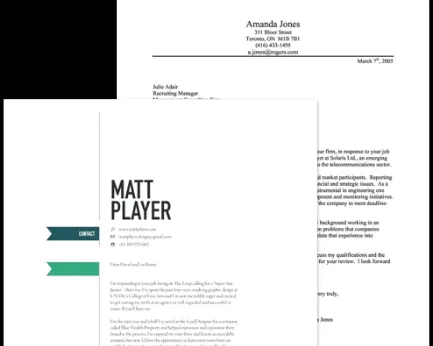Cover Letter for Unadvertised Job What is it?
A cover letter for an unadvertised job is a proactive tool for job seekers. It’s a letter you send to a company to express your interest in a position, even if there are no open positions advertised. This approach is how to enter the hidden job market – opportunities that aren’t publicly listed. It demonstrates initiative and a genuine interest in the company, which can set you apart. It’s about creating your own opportunities and making a strong first impression, highlighting your value before a role is even defined.
Why Write a Cover Letter for Unadvertised Job
There are many benefits to sending a cover letter for an unadvertised job. Firstly, it shows proactiveness, a quality employers value. It gives you an advantage as you’re not competing with many applicants. Such letters enable you to target companies that align with your interests and skills, instead of responding to general job postings. Furthermore, it allows you to introduce yourself to the hiring manager directly, potentially bypassing automated screening. This can lead to unexpected opportunities and expand your network. It allows you to create your own opportunities by demonstrating your value before a specific job opening.
Researching Companies
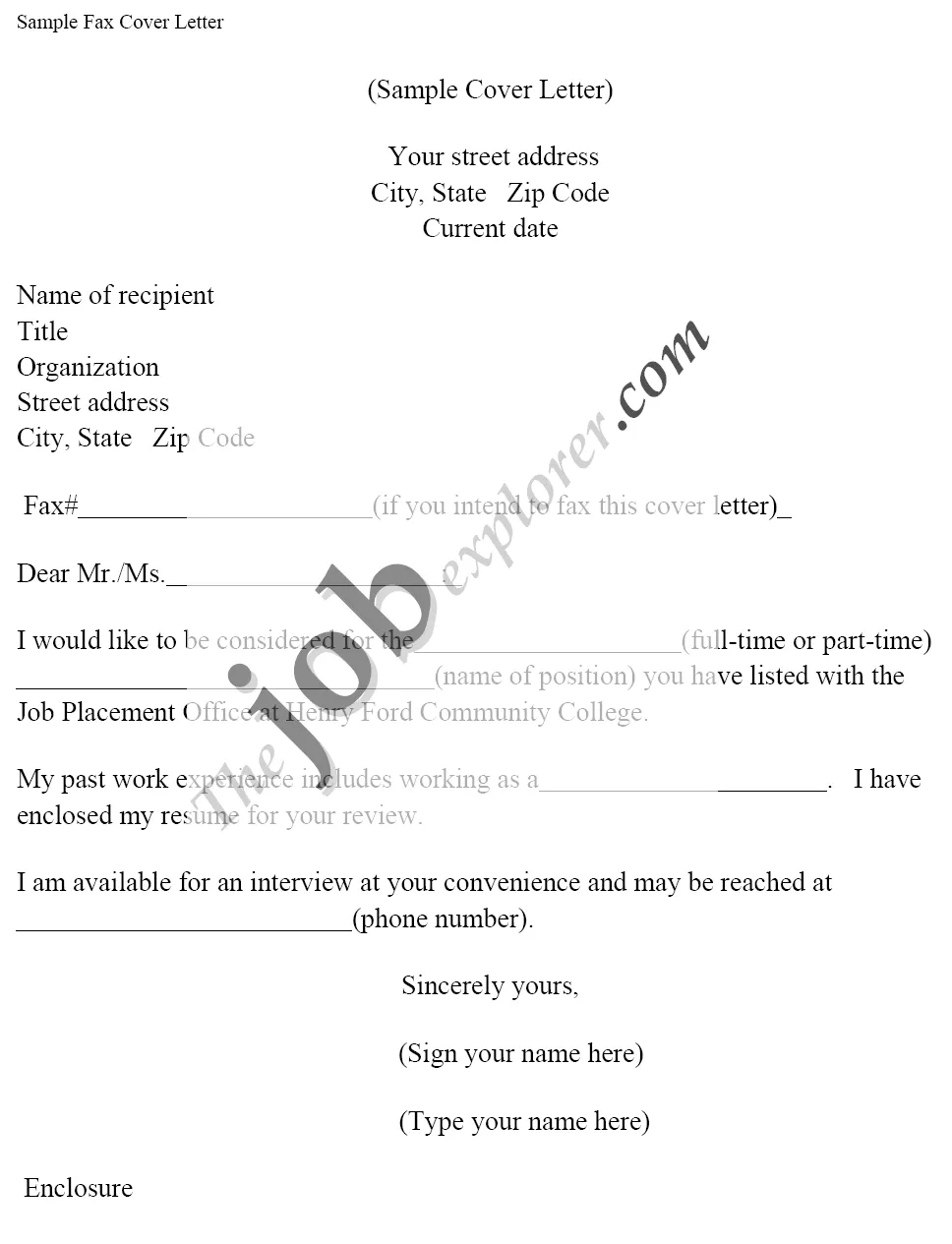
Thorough research is critical for a successful cover letter for an unadvertised job. Begin by identifying companies aligning with your goals. Explore their websites, read news articles, and check social media to understand their mission, values, and projects. This helps you tailor your letter and show genuine interest. Look for growing companies, those expanding into new markets, or launching new products. Identify key individuals like hiring managers and use their names to make a personal connection. Research lets you anticipate their needs and tailor your skills to challenges.
Identifying Potential Opportunities
Once you have your target companies, identify possible opportunities. Even without advertised positions, there may be needs you can address. Consider departments where your skills would fit. Think about projects the company may be working on or areas where they need support. Look for hints on their website or in press releases. Be prepared to articulate how your skills contribute to the company’s success. It may involve identifying gaps and suggesting solutions.
Crafting a Compelling Cover Letter
A compelling cover letter makes a positive impression. Address the letter to a specific person. State your purpose clearly in the opening, highlighting your interest and the type of role you want. In the body paragraphs, focus on your skills and experience, providing examples of your accomplishments. Quantify your achievements whenever you can. Show enthusiasm for the company and its mission. Tailor your letter to each company, avoiding generic language and focusing on their specific needs.
Personalizing Your Letter
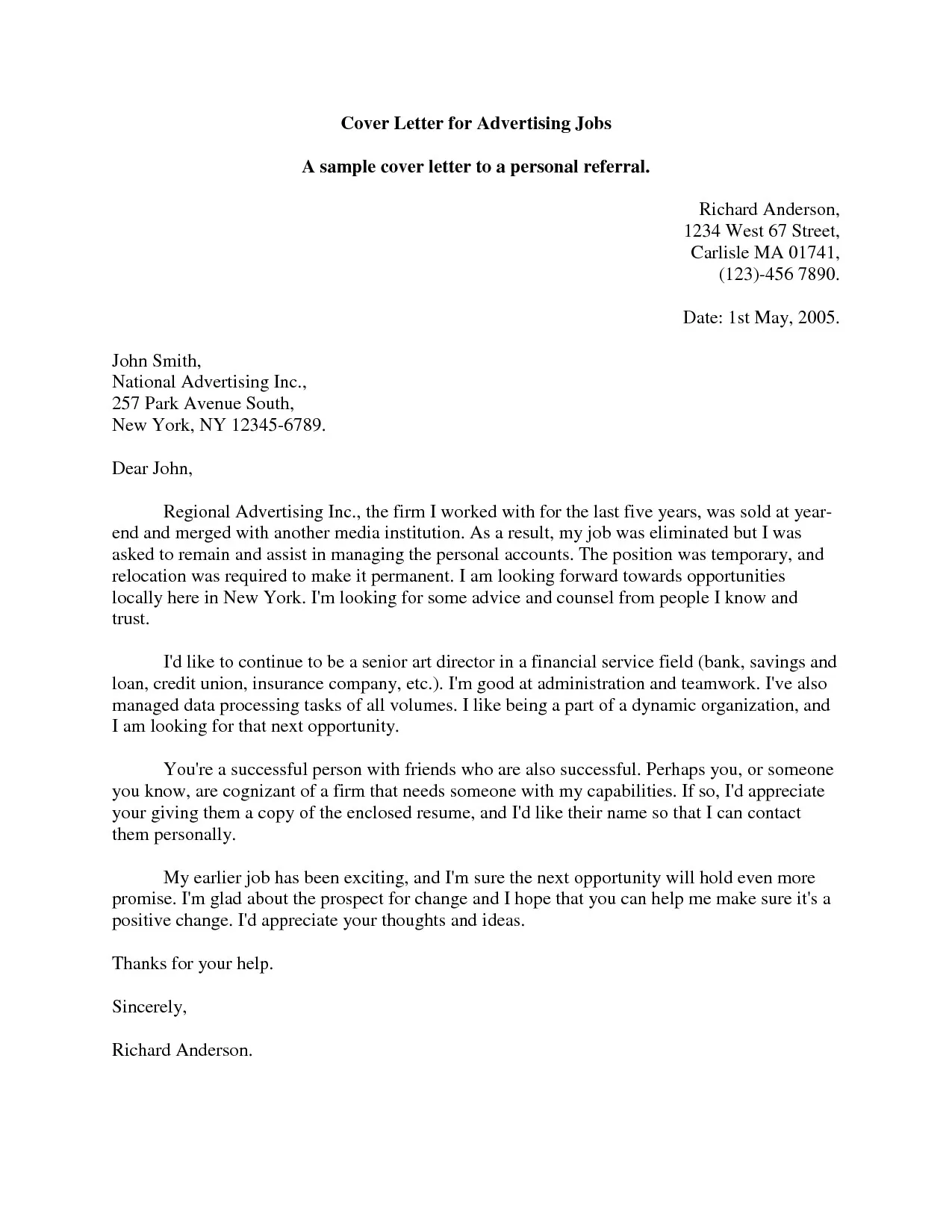
Personalization is crucial. Avoid generic templates and customize each letter. Show you know the company and why you are interested in them. Show you’ve researched their values and goals. Mention any recent news or projects that caught your attention. Reflect on your personality and how it matches the company culture. The more personalized, the more likely it is to stand out and get attention.
Highlighting Relevant Skills
Emphasize skills that align with the company’s needs, even if you don’t know the exact job requirements. Review your resume and select the most relevant skills. Tailor them to the industry, business model, and mission. Provide concrete examples of how you used these skills to achieve results. Focus on transferable skills such as communication, problem-solving, and teamwork. This shows you can contribute value, regardless of the position. Use keywords from the company’s website to show you understand their needs.
Demonstrating Enthusiasm
Enthusiasm can make your cover letter memorable. Show your interest by expressing your admiration for their work, mission, or products. Explain why you’re excited to contribute to their team. Use positive language and a confident tone. Connect your goals with the company’s objectives. Show genuine interest and excitement for the possibility of working there. Your enthusiasm will catch the hiring manager’s attention.
The Importance of a Strong Subject Line
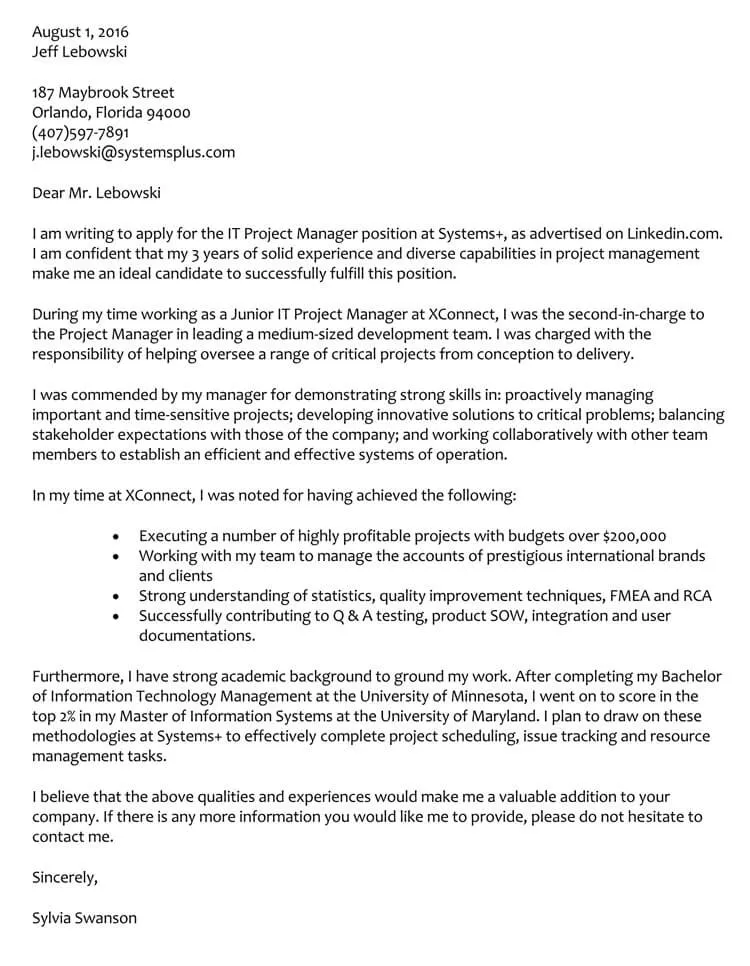
A strong subject line increases the chances of your email being opened. Your subject line should capture the reader’s attention immediately. Be specific and concise, avoiding generic phrases. Use a subject line that mentions the role you seek, highlights your key skills, or shows your understanding of the company’s needs. Use the hiring manager’s name or the company name. Examples include, “Seeking Marketing Opportunity at [Company Name]” or “Experienced Project Manager Interested in Contributing to [Company’s Goal].”
Formatting and Structure
A well-formatted cover letter is easy to read and professional. Use a standard business letter format, including your contact information, the date, and the recipient’s contact information. Choose a readable font, such as Times New Roman or Arial. Use single spacing within paragraphs and double spacing between paragraphs. Keep the letter concise, ideally within one page. Divide your letter into clear sections: introduction, body paragraphs, and conclusion. Proofread to eliminate any errors in grammar or spelling.
Contact Information
Make sure your contact information is clear and accessible. Include your full name, phone number, email address, and professional social media profiles. Ensure your email address is professional. Place this information at the top of your cover letter. Include the recipient’s contact information. Provide your contact details so the employer can easily reach you. This will allow the hiring manager to contact you quickly if they are interested.
Opening Statement
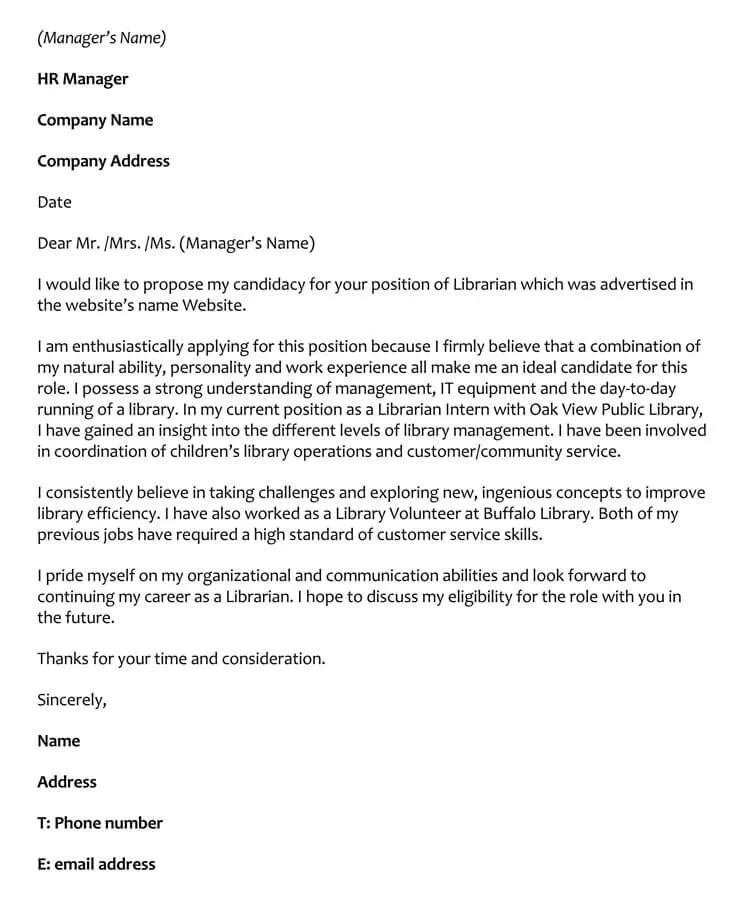
Your opening should grab the reader’s attention and set the tone. Address the hiring manager by name, if possible. State your purpose for writing and what role you want. Show you are reaching out because of your interest in the company, not a specific job. Briefly mention how your skills align with the company’s goals. The opening statement sets the stage and encourages the reader to continue.
Body Paragraphs
The body paragraphs highlight your qualifications and demonstrate your value. Focus on your relevant skills, experience, and accomplishments. Use specific examples to illustrate your capabilities and quantify your results. Tailor your content to the company’s needs and explain how your skills align with their mission. Show how you can solve their problems. Use 2–3 body paragraphs to show the reader that you are a good fit for the role.
Call to Action
Your call to action should encourage the reader to take the next step. State your desire for an interview or a meeting. Express interest in learning more about the company or how you can contribute. Provide your availability. Make it easy to reach you by including your contact information. A well-crafted call to action increases the likelihood of a response and moving forward.
Proofreading and Editing
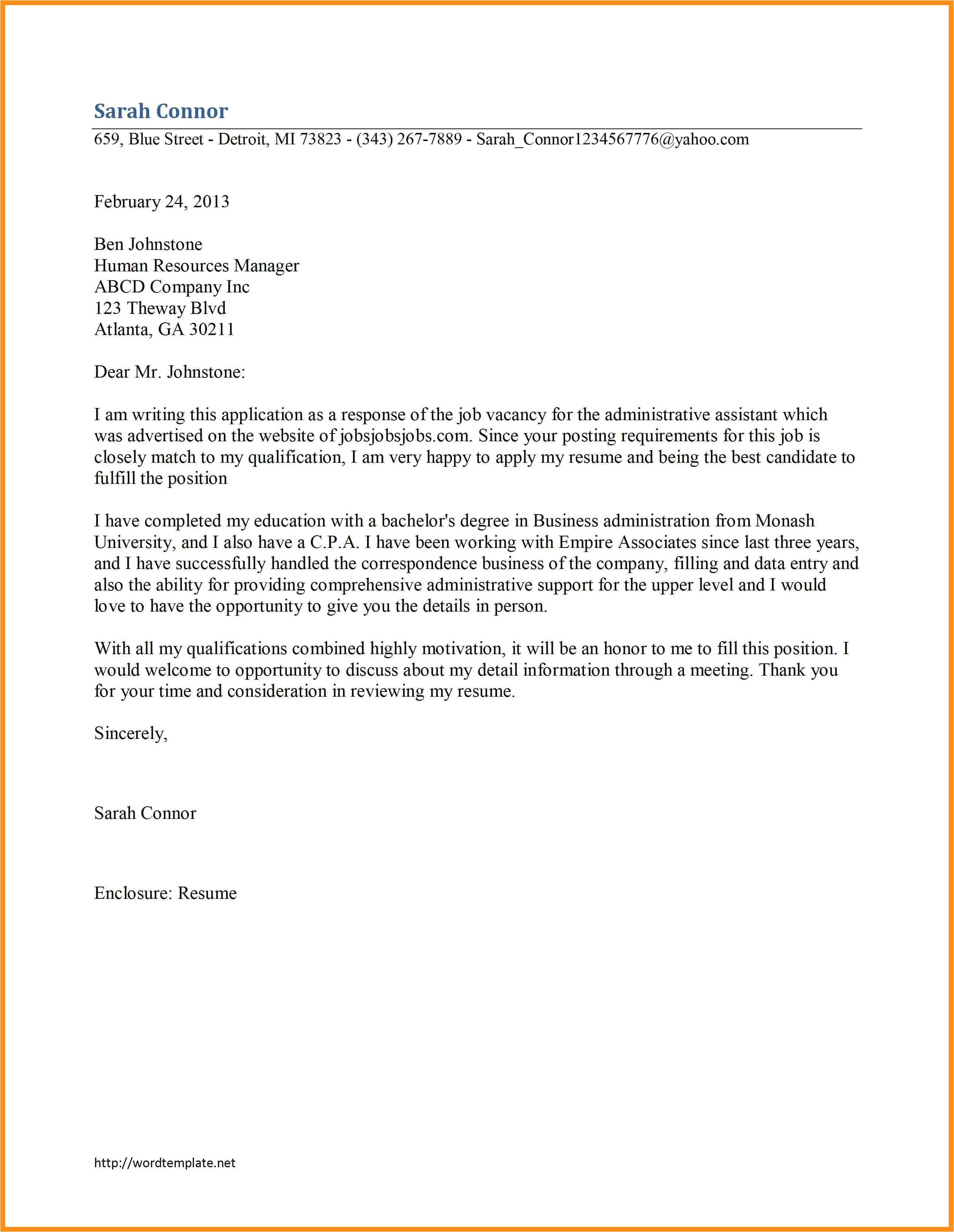
Proofread and edit your cover letter carefully. Eliminate typos, grammatical errors, and punctuation mistakes. Read your letter aloud to catch any awkward phrasing. Ask a friend or career counselor to review your letter for feedback. Ensure your language is professional, clear, and concise. Pay attention to the tone. Proofreading demonstrates professionalism and attention to detail.
Tips for Success
Here are some additional tips. Tailor your letter to each company and contact person. Research the company and highlight your value. Be specific and quantify your achievements. Keep your letter concise. Proofread carefully. Show enthusiasm and follow up within a reasonable timeframe. Be patient. Persistence and a proactive approach increase success.
Following Up After Submission
Following up is key. After sending your cover letter, wait one to two weeks before following up. Send a brief email or call to reiterate your interest and inquire about the status of your application. Include new information if you have it. Be polite and professional. Following up shows your interest and reinforces your application, which can increase the chance of an interview.
